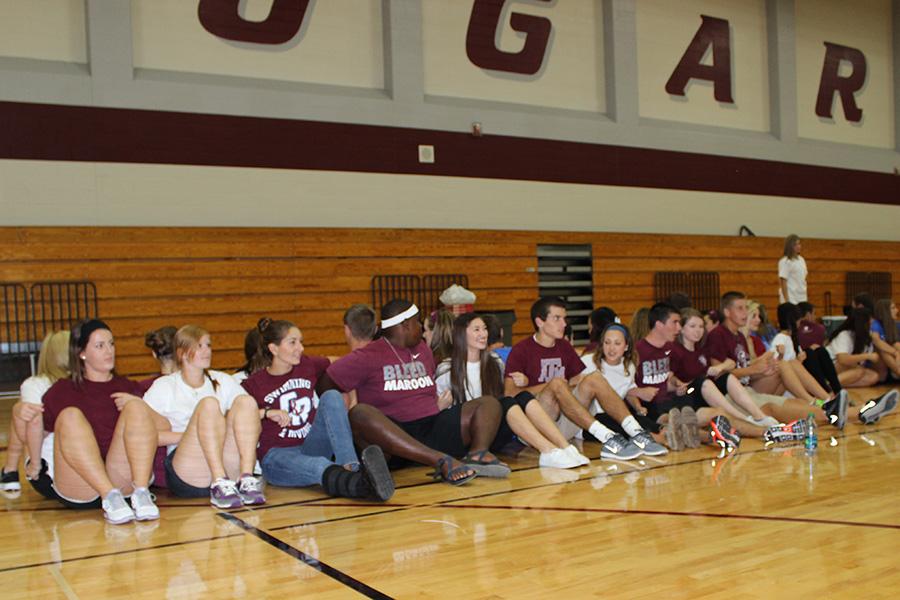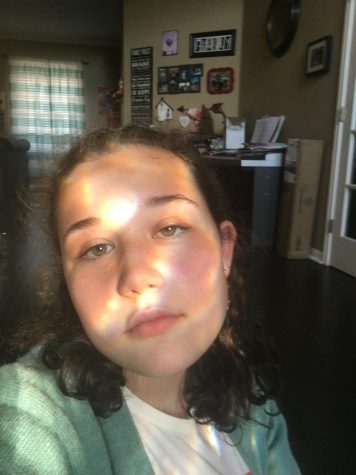You’ve Got A Friend in Me: The PALS of CRHS
November 30, 2021
Every year, the PALS program at Cinco Ranch High School gives nearly 80 students a chance to bond with younger students at feeder schools. Cinco Ranch has seen massive changes in its 22-year existence, but the PALS program has stayed true to its same founding principle.
“The main objective of the PALS program is to give juniors and seniors the opportunity to mentor and befriend younger students… who will be future Cinco Ranch Cougars.” PALS teacher Amy McConnell said.
Mrs. McConnell is one of three PALS teachers on campus, sharing her extensive experience with eager upperclassmen. These students undergo a rigorous selection process with several phases to become a PAL, and must be nominated by a teacher to even be considered for the program.
“We send out letters to the entire faculty at Cinco Ranch High School that ask them to nominate people that come to mind when given the descriptive characteristics of a PAL.” Mrs. McConnell said. “Honest, trustworthy, hard-working, dependable, and compassionate are some of the keywords that we put on that form.”
The nomination is just the first step of the lengthy journey that students must take to become a PAL. After they are successfully nominated by a teacher, students who are interested in becoming a PAL attend a meeting explaining the PALS program and the expectations that come along with it.
“They fill out an application and then they are scheduled for an interview.” Mrs. McConnell said. “All students come through an interview process where the current PALS teachers interview them, and those teachers, with the assistance of administrators… go through the process of selecting however many candidates will fit into the program.”
In the past, most PALS candidates have been completely new to the program. The PALS class demands multiple slots, a sacrifice which relatively few students can afford to make, especially on a campus as GPA-oriented and competitive as Cinco Ranch. With the increased prestige and appeal of the program in more recent years, this trend has been reversed, with more and more juniors pursuing a place in the PALS program.
“You want to have some juniors who are able to carry over the traditions and have insight and feedback to help train the newcomers the following year.” Mrs McConnell said. “Usually, a lot of the juniors do want to return. The majority opt to, especially this last year, because we weren’t able to go to our campuses and most of those juniors wanted the ‘real PALS experience’ this year.”
Students are drawn to the PALS program for many different reasons. Some enjoy spending time with younger siblings and other relatives, and want to do so on behalf of the PALS program at elementary and junior high schools. Others have been on the opposite end of the PALS relationship in the past, and they want to ‘pay it forward’ by setting a positive example for other students. Whatever it is that draws them to the program in the first place, all of the students learn very important lessons from their experiences in the PALS program.
“It reinforces their value and importance, in terms of their influence on others.” Mrs. McConnell said. “Oftentimes, we believe that we don’t really have a lot of influence or impact, and I think it’s very powerful for the teenager when you’re partnered with an individual who looks up to you, and looks forward to seeing you every week. You watch [the younger student] open up, become comfortable, and find their voice.”
The impact on the younger student is often immeasurable, with noticeable transformations in personality, self-esteem, and confidence. As important as the younger student’s growth is to the program, Mrs. McConnell finds that it is often the PAL themself who learns and grows the most.
“Through trying to become their best selves for somebody else, a younger person, they also become their best selves for each other, in the class, and work on being good people on this campus.” Mrs. McConnell said. “[The program] really helps a teenager recognize that they matter and that they have influence. They think ‘What I say, and what I do, it really does matter to other people.’”


